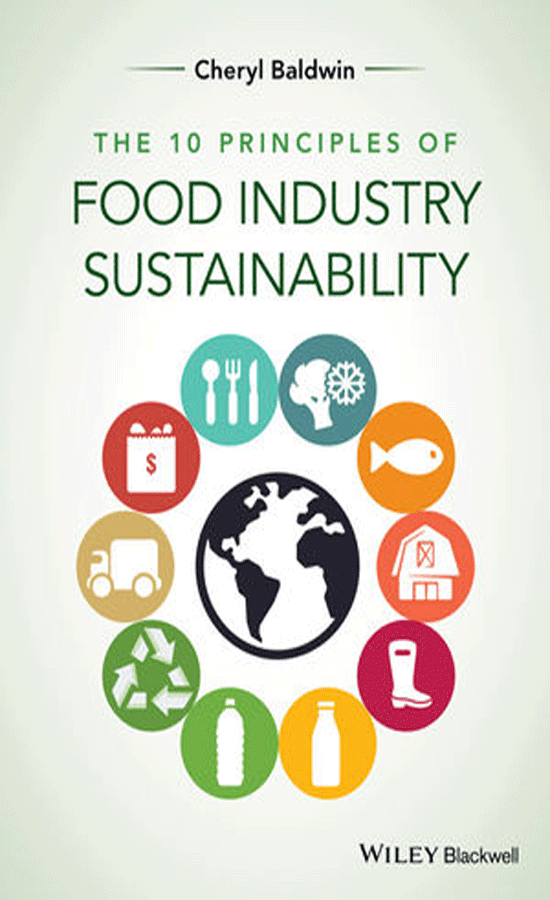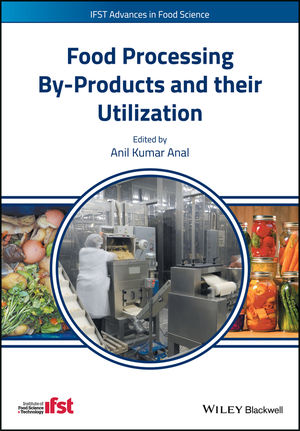Institute of Food Technologists launches FutureFood 2050 Program to highlight solutions to feed 9 billion people by 2050
The world’s largest scientific society of individual food scientists and technologists unveiled a sweeping new program today, FutureFood 2050, to create a broad dialogue on how science will deliver solutions needed to feed the world’s nine billion people by the year 2050.
FutureFood 2050 is backed by the Institute of Food Technologists (IFT) whose 18,000 members are scientists, researchers, technologists and food professionals from 100 countries working in academia, industry and government. With the premise that the science of food is an essential ingredient for feeding the world sustainably, FutureFood 2050 will highlight the people and stories leading the way toward a healthier, safer and better nourished planet.
IFT has always been focused on publishing valuable content for its members, food professionals and the media, including Food Technology magazine, IFT Expert Reports, IFT Scientific Status Summaries, Journal of Food Science, Comprehensive Reviews in Food Science and Food Safety and the Journal of Food Science Education. With the launch of FutureFood 2050, IFT has expanded its publishing mission to reach a broader audience through its interview series and upcoming documentary film. Under the direction of an independent editorial team, FutureFood 2050 will come to life over the coming months with 75 interviews featuring independent-minded thought leaders around the globe. At the same time, a documentary will be completed looking at how the science of food will contribute solutions to feeding the world. The documentary will provide the public with a closer, more intimate look at the science, stories and personalities addressing this challenge.
“Many films have focused on food issues, but they often neglect or misinterpret the role of science, sometimes relying on personal beliefs more than facts,” says Scott Hamilton Kennedy, the Academy Award-nominated film director overseeing the FutureFood 2050 documentary, scheduled for release in mid to late 2015. “By looking at this challenge through the unbiased lens of science, our goal is to address critical questions surrounding food in a fair, transparent manner that will hopefully surprise, and maybe even transform us along the way.”
From now until the film’s 2015 release, the FutureFood 2050 interview series will look more broadly at the ways that science is tackling the world’s most pressing food issues. A new website at www.FutureFood2050.comwill serve as a digital hub for the public to follow the stories and connect science to the conversation about how to feed the planet. An international team of editors and journalists, including award-winning author of The Taste of Tomorrow: Dispatches from the Future of Food, Josh Schonwald, will uncover the stories that shape the interview series.
“Feeding nine billion people by 2050 simply can’t happen without science and technology playing a leading role,” Schonwald said. “This project will showcase leaders, thinkers, entrepreneurs and activists who are shaping the future of food from a wide variety of perspectives – some high tech, some not. And along the way, we hope to foster a better dialogue about the options surrounding some of the world’s most complex, highly-charged issues.”
The FutureFood 2050 interview series will tackle topics across the food spectrum including global hunger, sustainability, health and nutrition and food safety. Since complex issues like feeding nine billion people by 2050 aren’t just about food, the interview series will also explore issues related to climate change, sustainability, politics, economic factors and more. Scientists—along with cultural influencers, policy makers, entrepreneurs, chefs, journalists and more—will be featured.
The 75 articles will be bundled in monthly themes over this year and next, and are available at www.FutureFood2050.com. Available immediately are the first three articles covering the following:
- Former Executive Director of the UN’s World Food Programme, Catherine Bertini, who is working to empower the world’s women as the missing link in global food aid programs.
- Legendary geneticist, M.S. Swaminathan, heralded as the father of India’s “Green Revolution,” saying it’s time for the next step: greater agricultural productivity without ecological damage.
- Cutting-edge engineer, Anjan Contractor, who is bringing food science to space travel by helping NASA feed astronauts on Mars and beyond with 3-D food printing.
This year marks the 75th anniversary of the Institute of Food Technologists—the inspiration for FutureFood 2050’s interview series with 75 global thought leaders. Since its founding in 1939, IFT has been committed to advancing the science of food, both today and tomorrow. In addition to IFT’s peer-reviewed publishing programs, IFT also leads a broad educational effort to educate food professionals through its Scientific Program at the Annual Meeting & Food Expo.
Current IFT President, Janet E. Collins, PhD, RD, CFS has championed the program along with the IFT Board of Directors who have been guiding the organization to reach its mission of providing a safe and abundant food supply contributing to healthier people everywhere. “We know that now more than ever, there is a need to directly communicate the facts about food science. By creating a compelling publishing and communications program to deliver our message, we can make the greatest impact for our membership and our community by showing the great promise of the profession in the decades ahead,” said Collins.
Source: IFT
Looking for a reprint of this article?
From high-res PDFs to custom plaques, order your copy today!








